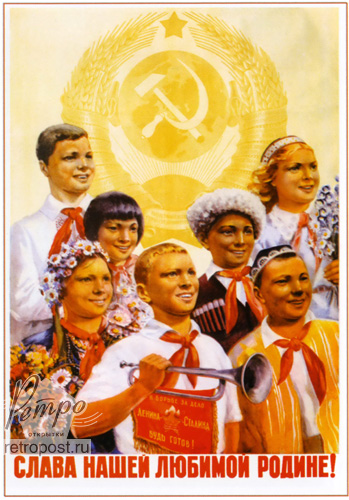For example. Onnik Krikorian writes: “Tbilisi, capital of Georgia and arguably the cultural heart of the South Caucasus. It’s always a delight to visit and not least because it is perhaps the only place in the region where Armenians, Azerbaijanis and Georgians can meet without centuries of mutual hostility and post-Soviet conflict driving a wedge between people with more in common than not. For Armenians and Azeris this is especially true given the still frozen conflict over Nagorno Karabakh. Overcoming negative stereotypes in the South Caucasus
Vusala Alibayli quotes an Azeri woman from Georgia: “This is Georgia, after all. There is not any discrimination among nationalities”.
These are perception of Azeri and Armenian journalists who traveled to Georgia to observe how ethnic Azeris and Armenians co-exist in Georgia. And they conclude that, if they can live together peacefully on this land, they can also live elsewhere.
This is really an encouraging observation. But, how come inter-ethnic tension remain as a top problem of Georgia?
Georgia was and still remains as the most multi-ethnic state in the South Caucasus.
But the comparison of 1989 and 2002 censuses shows that number of ethnic minorities have been decreasing.
| Nationality in % | 1989 | 2002 |
| Georgians | 70.1 | 83.8 |
| Azeris | 5.7 | 6.5 |
| Armenians | 8.1 | 5.7 |
| Ossetians* | 3.0 | 0.9 |
| Russians | 6.3 | 1.5 |
| Abkhaz* | 1.8 | 0.1 |
| 1989 census shows Abkhaz and Ossetians in Georgia including in Abkhazia and South Ossetia. 2002 census shows Abkhaz and Ossetians in Georgia excluding Abkhazia and South Ossetia | ||
Two territorial wars and one civil war negatively affected not only ethnic Georgian but other groups as well. But it was not only the war and bad economic conditions. It was also the phenomenon that most of Georgians and especially politicians considered ethnic minorities as threat to Georgian Statehood. Intolerance and discrimination was a common practice.

Things started to change probably around 2004. New government representatives often underline that citizenship, not ethnic belongingness is important. President Saakashvilis comment is one of the most outstanding: “If somebody hates Armenians, I Mikheil Saakashvili will be an Armenian with him, if somebody hates Ossetians I will be an Ossetian with him. Hates Azeries? - I will be an Azeri, hates Jews? - I’ll be a Jew but still I will remain the greatest Georgian because patriotism is not measured by people’s origin - but by the efforts of people like you.” Though, Saakashvili did not reinforce his words with real deeds, especially in Abkhazian and South Ossetian context. His military rhetoric was disturbing, further alienating Abkhazians and Ossetians. He, in fact, introduced an “enemy image” for Russians, Abkhazians and Ossetians in Georgia, and many might even believed that.
Though, a new tendency after so called Rose revolution is clearly noticeable. The ethnic diversity is presented as a value itself, not an obstacle. It is no longer a good tone for politicians to talk about “Georgians” but rather about “Georgian citizens”.
And changes are noticeable. For example, the official web-page of the Conservative Party of Georgia, members of which are supporters of former Georgian President Gamsakhurdia, is now operating on Georgian, Azeri, Armenian, Abkhazian, Ossetian, and Russian languages. http://conservatives.ge/
To leave politicians aside, Georgians do consider themselves as tolerant people and statements like: “it is due to our tolerance that we have problems with South Ossetia and Abkhazia”, are sometimes made. Though, from my observation, tolerance is still a new and undigested concept in Georgia. Paradoxically, the older generation – those who were brought up during the Soviet Union under Communist slogans of ‘friendship of nations” “equality for all”, are less tolerant.

Hopefully, young generation remains committed to the idea of “Unity in Diversity” and bring real changes to the country.
Medea I guess it's you, when you write "from my observation" and not Onnik and I would agree with you, that "Unity in Diversity" is very acceptable and secure way for Georgia. I learn more about it here in Canada. We often talk about our multikultural country and we are proud because of our "Unity in Diversity". With this we want to be different than most european countries, which still are based on one nation and national understanding. I would love if Georgia choose same way and adopts ideology of "Unity in Diversity". Nowadays we see that this is direction Georgia has taken and it makes me happy and hopeful at the same time.
ReplyDelete